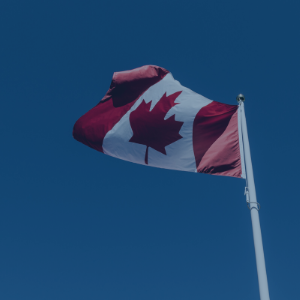
Approval of governments’ COVID-19 response is relatively stable nationally, but the national picture masks a sharp decline in Alberta and an increase in Ontario. These findings are from INNOVATIVE’s September Canada This Month survey. This online survey was in field from September 24th to October 5th, 2021, with a weighted sample size of 1,500 Canadian residents. Detailed methodology is provided in the appendix.
Attention/Concern
Most respondents (83%) continue to follow COVID-19 news closely. Respondents concerns about catching COVID themselves (54%) has been steady since the end of July, although “very concerned” is down 4-points since the last wave of tracking. Concern for a vulnerable friend or relative (70%) has also been stable since mid-May 2021. Concern over future waves of COVID-19 remains very at high at 75% but has slipped 4-points from 79% in early August.
Passions are growing against the backlash towards vaccinations. While a quarter of Canadians (26%) continue agree that they are angry the government is trying to force Canadians to get vaccinated, intensity of disagreement has jumped 7-points since the last tracking wave.
COVID-19 Federal
Approval for the federal government’s handling of COVID-19 (49%) is marginally up since our previous wave in early September (47%). When asked whether federal restrictions are too tight, too loose, or about right, 39% think the restrictions are about right, 35% think they’re too loose, and 21% think the restrictions are too tight.
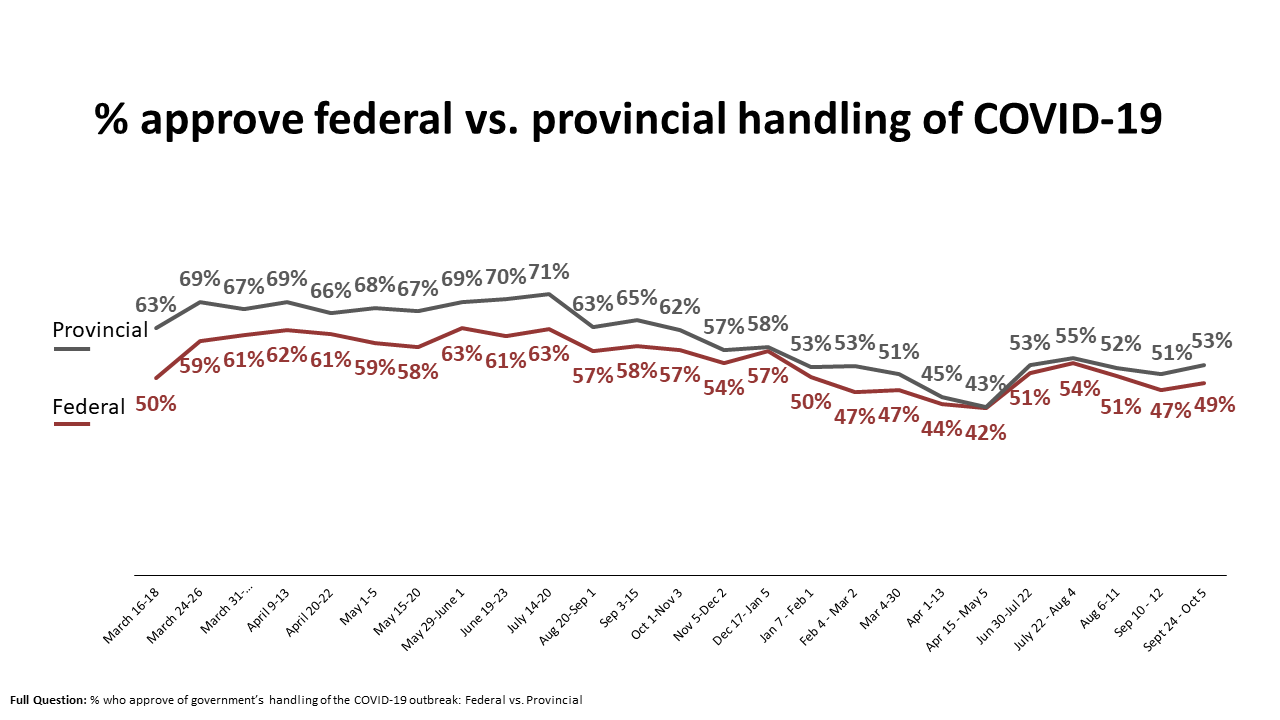
COVID-19 Provincial
The national average for provincial approval in this wave was 53%, putting it 4-points higher than federal approval. Approval is highest in Quebec (72%), followed by BC (61%), Ontario (47%), and Alberta (19%). The somewhat stable national average 51% in the last wave and 53% now, masks a significant decline in Alberta (-6 points since the last wave), and an increase in approval in Ontario over that same time period (+5 points).
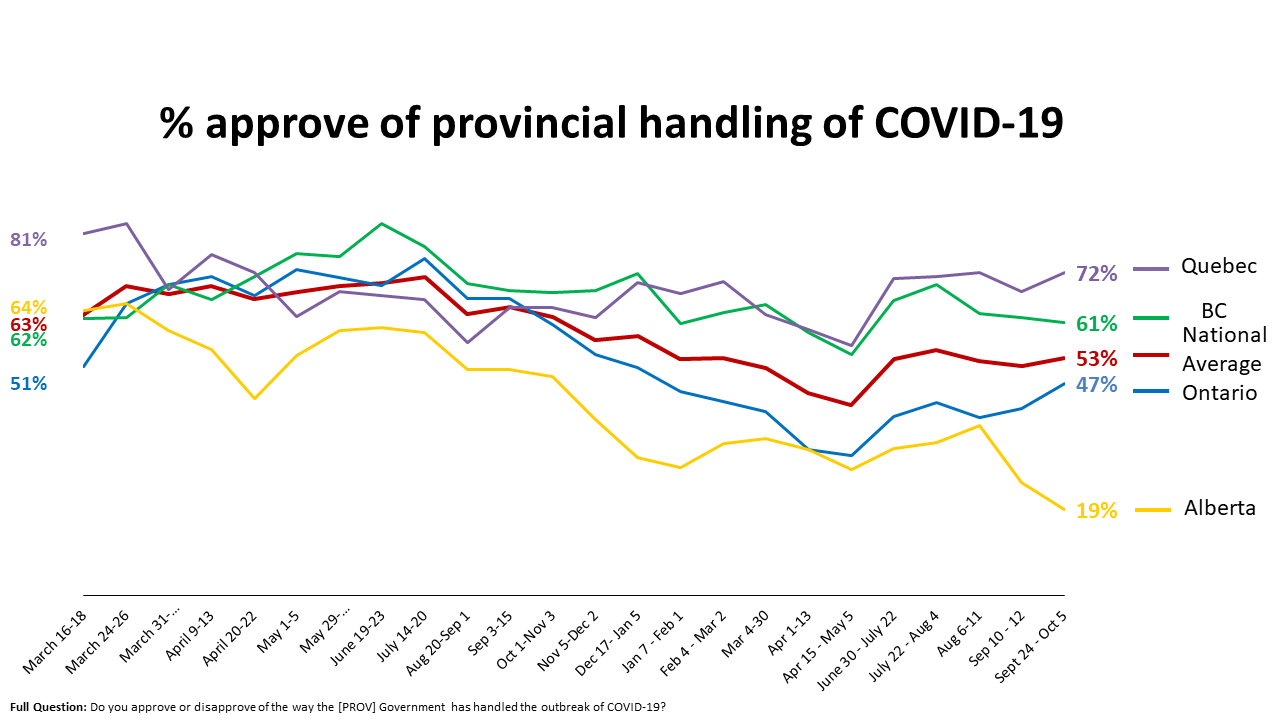
When asked whether provincial restrictions were too tight, too loose, or about right, 2-in-5 (43%) report thinking their provincial government has found the right balance.
In BC, “about right” increased by 7 points since early September, jumping from 38% to 45%. In that same time, “far too tight” fell by 6 points from 12% to 6% in the province. Overall, 37% in BC still think the restrictions are too loose, comparable to the previous wave of tracking (38%).
In Alberta, more than half (53%) say restrictions are too loose, including 31% who say they are far too loose. This is consistent with the previous wave, where 54% said too loose and 30% said far too loose. Since early September, “somewhat too tight” has fallen by 4 points and “about right” has added 3 points.
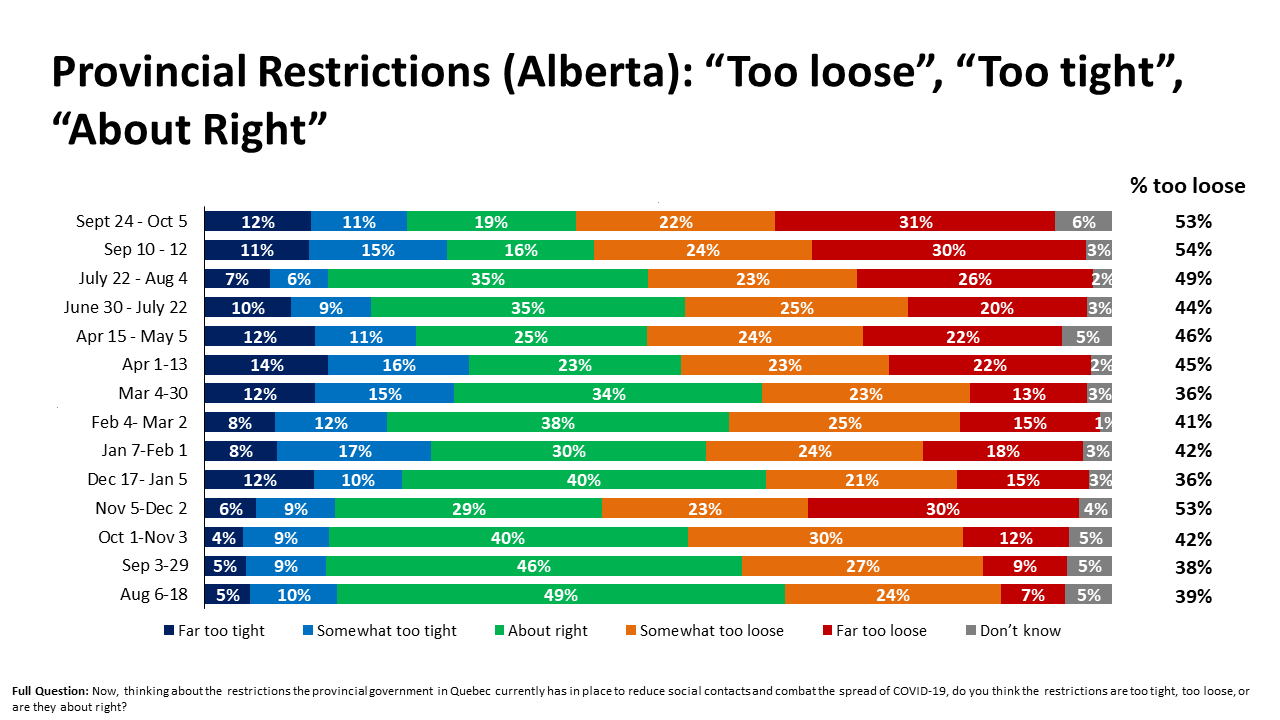
A plurality of Ontarians say provincial restrictions are “about right” (44%), comparable to the previous wave (43%). Respondents who feel the restrictions are too loose (31%) has been stable since the end of July.
Quebec stands out in concerns about restrictions. In Quebec, more say restrictions are too tight (25%) than too loose (19%), the highest proportion of “too tight” respondents in the survey. Following a 5-point decline in the previous wave, however, those who think the province’s restrictions are “about right” is back up to 53%, where it was at the end of July.
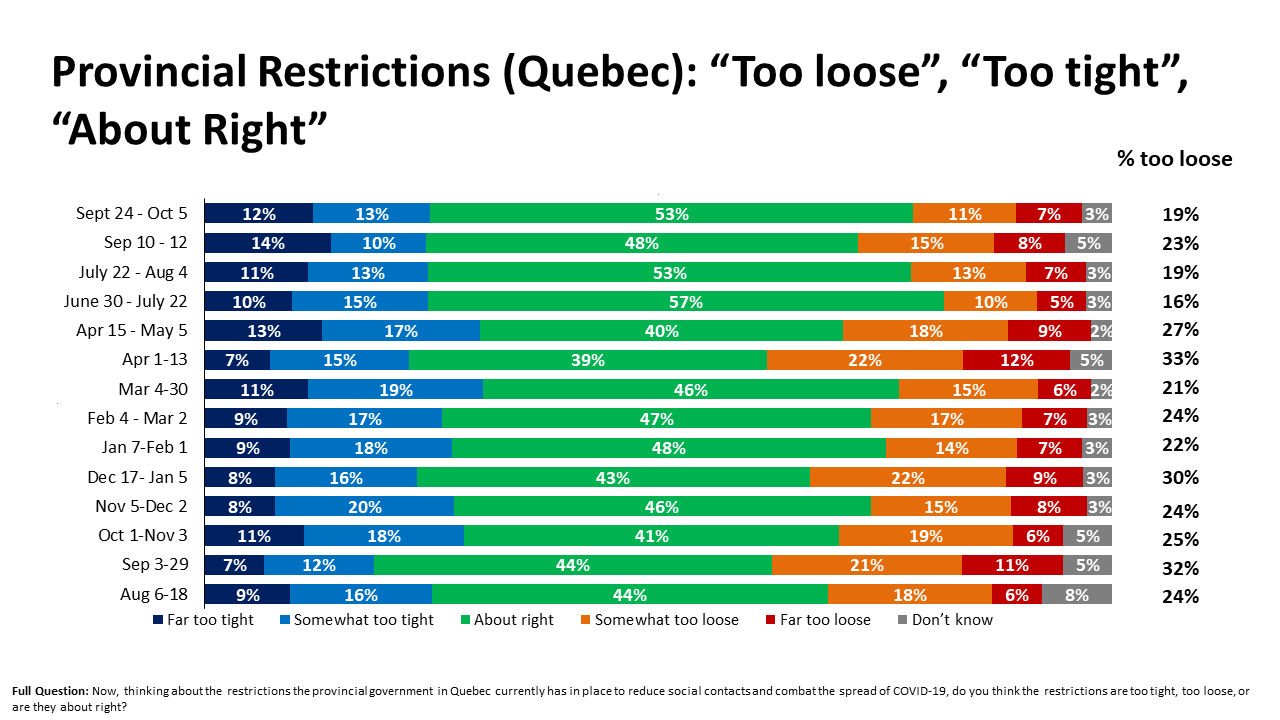
Summary
Nationally, approval of federal and provincial responses to COVID-19 are relatively stable, even though Alberta is trending down, and Ontario is trending up. A plurality report thinking their province’s restrictions are “about right”, except in Alberta where most say it’s too loose. While concerns are starting to ease, large majorities remain concerned over future waves of COVID and about either themselves or their vulnerable friends and family catching COVID.

